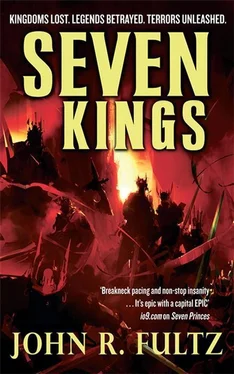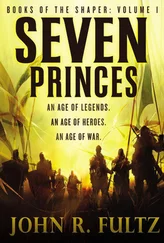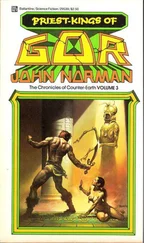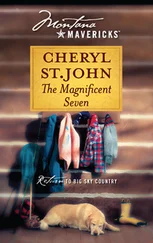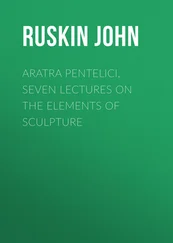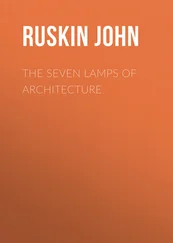John Fultz - Seven Kings
Здесь есть возможность читать онлайн «John Fultz - Seven Kings» весь текст электронной книги совершенно бесплатно (целиком полную версию без сокращений). В некоторых случаях можно слушать аудио, скачать через торрент в формате fb2 и присутствует краткое содержание. Жанр: Фэнтези, на английском языке. Описание произведения, (предисловие) а так же отзывы посетителей доступны на портале библиотеки ЛибКат.
- Название:Seven Kings
- Автор:
- Жанр:
- Год:неизвестен
- ISBN:нет данных
- Рейтинг книги:3 / 5. Голосов: 1
-
Избранное:Добавить в избранное
- Отзывы:
-
Ваша оценка:
- 60
- 1
- 2
- 3
- 4
- 5
Seven Kings: краткое содержание, описание и аннотация
Предлагаем к чтению аннотацию, описание, краткое содержание или предисловие (зависит от того, что написал сам автор книги «Seven Kings»). Если вы не нашли необходимую информацию о книге — напишите в комментариях, мы постараемся отыскать её.
Seven Kings — читать онлайн бесплатно полную книгу (весь текст) целиком
Ниже представлен текст книги, разбитый по страницам. Система сохранения места последней прочитанной страницы, позволяет с удобством читать онлайн бесплатно книгу «Seven Kings», без необходимости каждый раз заново искать на чём Вы остановились. Поставьте закладку, и сможете в любой момент перейти на страницу, на которой закончили чтение.
Интервал:
Закладка:
“Your brother expects you at the feasting,” said the sage, as if he muttered a warning.
Lyrilan nodded. “I will not disappoint him. In fact, I may drink more wine than he does this night.” The servant handed him a thin coronet of gold with a single emerald set at the center of the forehead. Lyrilan slipped it on to fit tightly about his brow and arranged the long, oiled curls of his black hair. “Tell my wife I await her in the Grand Hall,” he said. The page rushed off to summon his mistress.
Volomses still had not looked away from his King. “You know there will be gladiators? Khyrein spies in a duel of death.”
Lyrilan nodded, took a deep breath, and drained his cup of its red refreshment. Already he felt the pleasant sting of the wine between his temples. He sighed.
“I did not,” he admitted. “My brother’s command?”
Volomses stared out the window at the falling gloom of evening. Stars winked in the deep twilight. The sun was nearly lost beneath the flat horizon, and golden towers stood purple as wounds. “More than likely the idea came from Lord Mendices,” spat Volomses. “That one has a hunger for blood that is never quenched. Would that he were not so close in your brother’s affections.”
Lyrilan pulled on tall boots of black oxen leather. He felt as stiff and formal as he looked. The sundown had brought little relief from the day’s heat, and he looked forward to the great fan bearers at the feast, if not the blood sport.
“Or perhaps it was Talondra?” he asked. His brother’s wife was an olive-skinned Sharrian. Her vicious beauty was exceeded only by her absolute hatred of Khyrei, the nation that had reduced Shar Dni to rubble in a single day of sorcery and slaughter. Her presence fueled Tyro’s lust for war as oil fed a brazier’s flames. Perhaps it was that dark passion, that very eagerness to spill Khyrein blood, that so attracted Tyro to her above all other courtesans. Perhaps it was her keen ambition to revenge the dead of Shar Dni that had impressed Tyro enough to make her his Queen. Dairon would not have approved, but Lyrilan had never said this to his brother. It was not his place.
Lyrilan must be the Peace Speaker. He must provide the balance to his brother’s glory-seeking war lust. Dairon had refused to initiate or participate in a war of vengeance. Lyrilan understood why. At one time he had thought that Tyro also understood. Perhaps it did not matter anymore now that Dairon was gone. His influence over Tyro was no more.
Would Tyro deign to read the book his brother had written? Would he rediscover the principles and philosophies that had made their father a great soldier and a great ruler?
That is why you really wrote this book, a voice inside him whispered. You wrote it for Tyro. You hope it will reach him.
Lyrilan shook his head. The wine was strong.
He strapped a jeweled dagger to his belt, strictly for the sake of formality. Now he descended the spiral stairs toward the opulent heart of the Palace of Sacred Waters. A pair of wing-helmed guards accompanied him, mute but for the clatter of their boots and the jangling of scabbards.
He braced himself for the sight of tonight’s bloodshed, a gaudy entertainment staged in the guise of justice. Normally he would never attend such an event, and would even argue its legitimacy with his brother. But he had learned one thing above all others in his thirteen months of being a King. He had learned to choose his battles carefully.
Though he must endure watching a man die during the feast, at least he would know the comfort of Ramiyah’s presence. They might even finish the dining and depart before the combat began. This would no doubt irk Tyro, but Lyrilan enjoyed sending such subtle signals of disapproval. Where Tyro was blunt, Lyrilan was understated.
The Scholar King and the Sword King, they were called. While two Kings ruled Uurz, there could be no Emperor, for that was a single title, meant for only one man to bear.
Always in the back of his mind, Lyrilan knew what this meant.
One of them must eventually die before Uurz would again have an Emperor.
It was a sobering fact that he had taught himself to utterly ignore.
The Feasting Hall was a hive of activity. A hundred barefoot servants rushed about in white togas serving platters of roasted meat, towers of sliced fruits, brown loaves and steaming broth. The royal board lay heavy with delicacies contrived by a squad of clever cooks, and vintages dark as ruby from the palace cellars sat along the table in crystal decanters. Already a few dozen noble couples and lacy courtesans had arranged themselves along the board, sipping at sparkling goblets, toying with powdered curls, whispering heresies into bejeweled ears, and chewing the flesh of plump black grapes plucked from jade bowls.
Squat pillars of white marble veined with violet lined the sides of the hall, and high windows admitted the evening breezes. The flames of torches dances in their sconces. The smells of steaming provender and wafting perfumes filled the high chamber. The walls lay hidden behind tapestries of ancient weave set with scenes of past Emperors leading their armies to victory or battling fiery Serpents in apocalyptic scenes that probably never happened. Yet the jewel eyes of the tapestry heroes gleamed bright as stars in the hall.
The floor was inlaid with a mosaic representing all the great ages of the world, from the Time of Walking Gods to the Age of Serpents, on to the Scattering of Tribes, the Age of Heroes, and many others, ending with the Age of the Five Cities. Four of those great cities still stood in this the Modern Age, yet there were no depictions of New Udurum. That titanic capital of black stone lay north of the Grim Mountains and was not founded by the Tribes of Man, but by the fickle northern Giants. It was Vod of the Storms who had opened Udurum’s gates to Men, and the thousands of refugees from fallen Shar Dni. One city was annihilated by darkest sorcery; another was transformed by similar powers.
The people of Uurz were close allies with Vireon, Son of the Giant-King, who now ruled Udurum. Yet in their hearts they did not fully trust the Tall Ones; many living still in Uurz remembered the day when Giants conquered their city and crushed the bloodline of their aged Emperor. Those survivors of Shar Dni’s destruction who had not fled to the City of Men and Giants fled instead to Uurz.
In recent years, rumors of the Giants’ departure from Udurum had spread to the green-gold city. Merchants from Udurum said the Uduru went farther north to find a new home in the Icelands. Still, there were many in Uurz who never forgot the sight of a Giant host thundering against the city walls, and they half expected the Uduru to return one day and take back the city they had conquered then abandoned.
At the far end of the great table, on a raised dais of glassy marble, Tyro the Sword King sat staring into the eyes of his wife and lover, Talondra. She lounged at his side in her own gilded chair of velvet and silk, her ring-heavy hands caressing Tyro’s chest. Tyro was everything his scholarly twin was not: broad of shoulder, dusky of skin, heavily muscled, and radiant with royal power. His long black hair hung wild about his shoulders, but his heavy beard was tied into a single braid with hoops of golden wire. His scarred chest was bare in the heat, glimmering with a necklace of topaz and opals. He wore a plaited bronze kilt in the manner of a legionnaire, underscoring his status as the realm’s chief soldier, his strapping legs bare, jeweled sandals resting on a lush carpet. Bracers of silver and onyx sheathed the Sword King’s forearms, and a slim crown of gold and emerald (identical to Lyrilan’s own) sat upon his brow.
Tyro did not need the crown to evoke a majestic aura, yet he wore it as custom dictated. Against the right arm of his high seat leaned a broadsword in a scabbard crusted with emerald and jade, the Emperor’s final gift to his warrior son. Dairon had left his journals to Lyrilan, his sword to Tyro. The man knew his sons well.
Читать дальшеИнтервал:
Закладка:
Похожие книги на «Seven Kings»
Представляем Вашему вниманию похожие книги на «Seven Kings» списком для выбора. Мы отобрали схожую по названию и смыслу литературу в надежде предоставить читателям больше вариантов отыскать новые, интересные, ещё непрочитанные произведения.
Обсуждение, отзывы о книге «Seven Kings» и просто собственные мнения читателей. Оставьте ваши комментарии, напишите, что Вы думаете о произведении, его смысле или главных героях. Укажите что конкретно понравилось, а что нет, и почему Вы так считаете.
